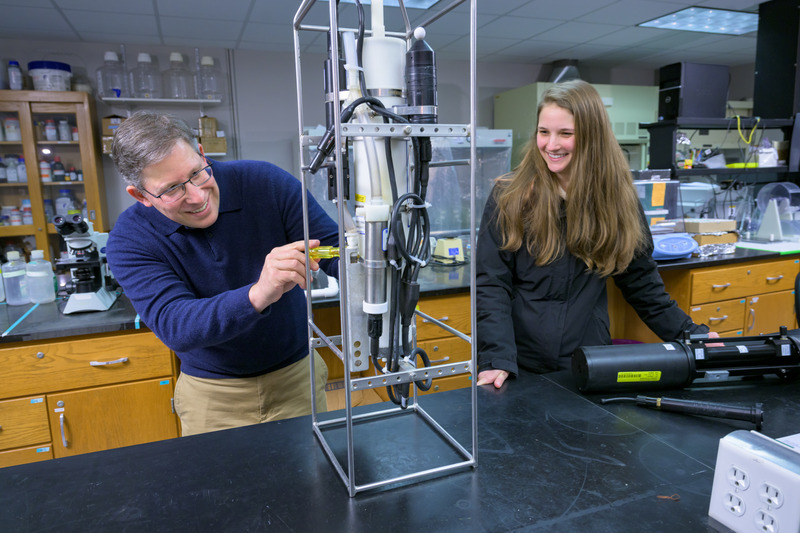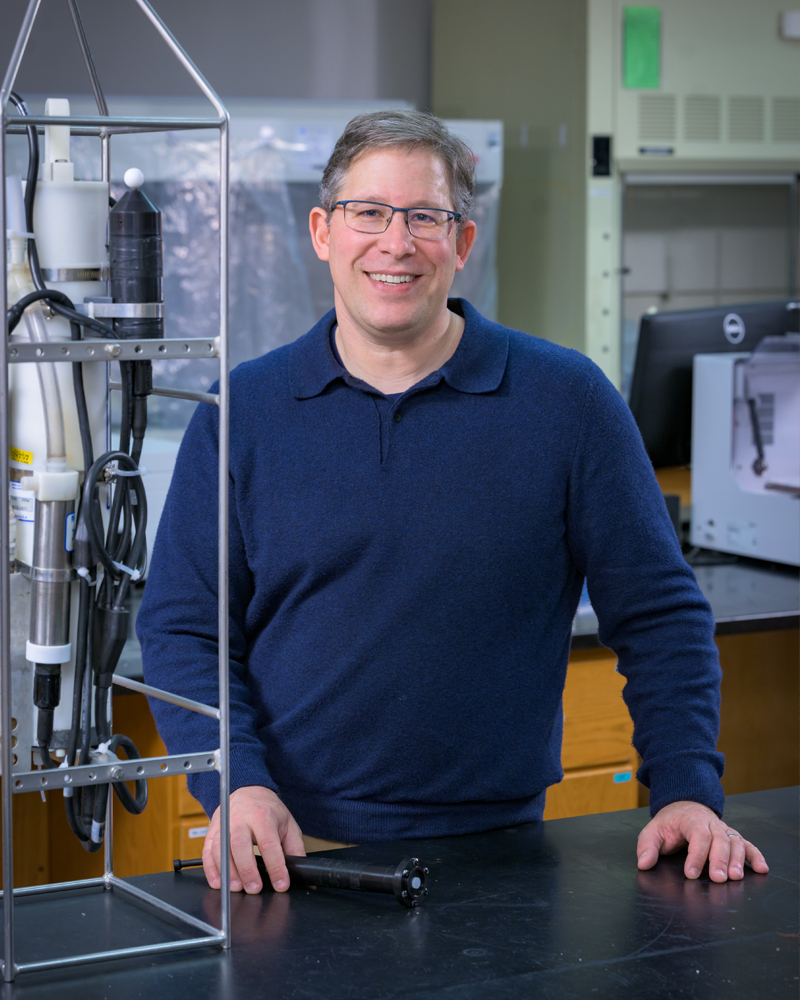


Arctic Scholar
Photos by Evan Krape April 08, 2024
UD’s Jonathan Cohen receives Fulbright Distinguished Arctic Scholar Award
University of Delaware professor Jonathan Cohen has been to Norway on nine previous occasions, but he’s never had the opportunity to stay in Norway for more than two weeks. That’s about to change, as he just received a 2024-2025 Fulbright Distinguished Arctic Scholar Award.
Cohen spent the past 10 years working with Norwegian colleagues to understand and quantify the seasonal light cycle in the Arctic, specifically how it affects the physiology and behavior of Arctic organisms. He will head to Norway in early 2025 to expand on the research, education and outreach he has cultivated over the years.
The Fulbright Distinguished Arctic Scholar Award is among the most prestigious appointments in the Fulbright Scholars Program and supports research and teaching within areas relevant to the understanding of the Arctic and High North regions.

During his time in Norway, Cohen, professor and marine science undergraduate coordinator in UD’s School of Marine Science and Policy, will have a three-month residence at the University of Tromsø, where he will conduct further research on seasonal changes to the quantity and quality of light in the Arctic and the light sensitivity of polar animals.
This will be done through research using novel sensors in the ArcLight Observatory on Svalbard. He will also work with graduate students at the University of Tromsø in a course on “extreme” animal physiology. For the third part of his project, Cohen will interact with Norwegian scientists and the public through site visits and lectures in the Norwegian towns of Tromsø, Trondheim and Bergen.
Cohen said he is excited to immerse himself in the culture and get a better understanding of Norway in general.
“I have never gotten to soak in the overall culture of Norway or the scientific culture and the community at the University of Tromsø in particular,” Cohen said. “I’m most excited to have a longer time period when I can interact with my colleagues and develop new collaborations and opportunities for the future.”
Outside of the university, Cohen said that Tromsø is a town with a wide array of other Arctic and marine science institutions and the longer stay will allow him to connect with the people at those institutions.
“I’m excited to take advantage of all the resources and contacts there to help develop new ideas, whether that is new research projects or study abroad opportunities for UD students,” Cohen said. “To be able to make those connections and spend time talking to people and finding areas of interest and opportunities for both my research and my instructional program requires more than just quick visits and is something that is harder to do remotely. When you’re talking remotely in a group Zoom setting, you don’t get the opportunity to make introductions in the same way and spend time with people to get those conversations going.”
With regard to the research he will be working on, Cohen was involved with the installation of instruments on Svalbard that have been collecting light since 2017. Cohen is envisioning spending time working with researchers based at the University of Tromsø that have kept up with those sensors, and working on the back end of the data collection system. He would also like to work on some of the data analysis from those sensors.
“It’s a unique stream of information that we’re getting. These sensors can measure light over the 24-hour cycle throughout the year in the high Arctic and those kinds of data are very rare,” Cohen said. “I’d like to do some dedicated work on some of the applications using those data, particularly, thinking about visual systems of animals and how different organisms perceive the cycle of Arctic light. I’d like to have a broader conceptual approach to doing that, whether they’re terrestrial organisms or the marine organisms I typically study.”
Cohen will also work with the group that he has previously worked with in Svalbard, which is north of Norway, on a research project looking at Kongsfjorden, a fjord system in Svalbard.
“We’ll be doing some ground truthing for light measurements and biological measurements that can help us interpret the light observations that we’ve been making,” Cohen said. “That will also allow us to work with some graduate students who are a part of that project.”
Contact Us
Have a UDaily story idea?
Contact us at ocm@udel.edu
Members of the press
Contact us at mediarelations@udel.edu or visit the Media Relations website

